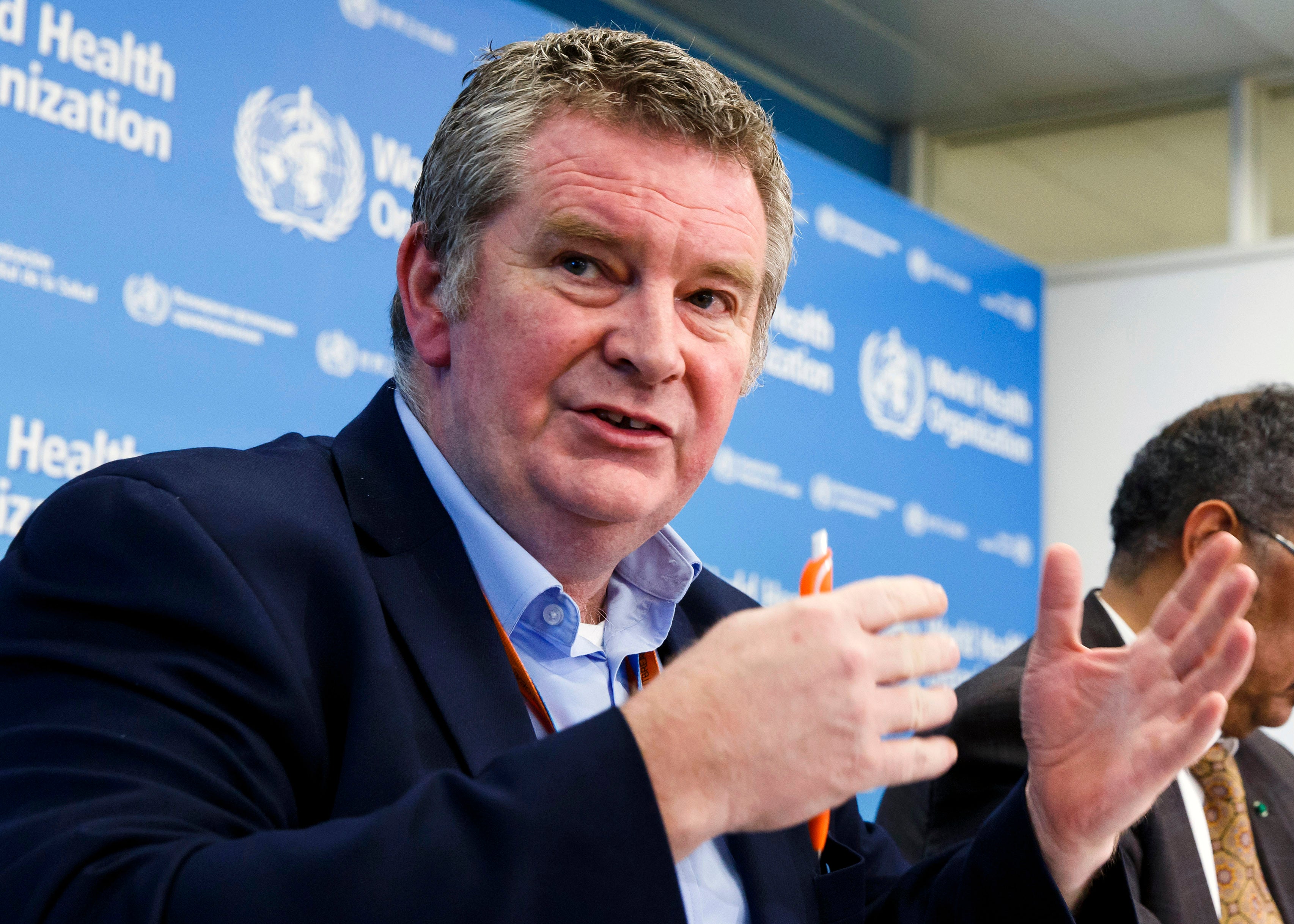WHO: High vaccination rates can help reduce risk of variants
A top World Health Organization official estimates that COVID-19 vaccination coverage of over 80% is needed to significantly lower the chance that an imported coronavirus case could spawn a cluster or a wider outbreak

Your support helps us to tell the story
From reproductive rights to climate change to Big Tech, The Independent is on the ground when the story is developing. Whether it's investigating the financials of Elon Musk's pro-Trump PAC or producing our latest documentary, 'The A Word', which shines a light on the American women fighting for reproductive rights, we know how important it is to parse out the facts from the messaging.
At such a critical moment in US history, we need reporters on the ground. Your donation allows us to keep sending journalists to speak to both sides of the story.
The Independent is trusted by Americans across the entire political spectrum. And unlike many other quality news outlets, we choose not to lock Americans out of our reporting and analysis with paywalls. We believe quality journalism should be available to everyone, paid for by those who can afford it.
Your support makes all the difference.A top World Health Organization official estimated Monday that COVID-19 vaccination coverage of at least 80% is needed to significantly lower the risk that “imported” coronavirus cases like those linked to new variants could spawn a cluster or a wider outbreak.
Dr. Michael Ryan, WHO s emergencies chief, told a news conference that ultimately, “high levels of vaccination coverage are the way out of this pandemic.”
Many rich countries have been moving to vaccinate teenagers and children — who have lower risk of more dangerous cases of COVID-19 than the elderly or people with comorbidities — even as those same countries face pressure to share vaccines with poorer ones that lack them.
Britain which has vastly reduced case counts thanks to an aggressive vaccination campaign, has seen a recent uptick in cases attributed largely to the so-called delta variant that originally appeared in India — a former British colony.
Ryan acknowledged that data wasn’t fully clear about the what percentage of vaccination coverage was necessary to fully have an impact on transmission.
“But ... it’s certainly north of 80% coverage to be in a position where you could be significantly affecting the risk of an imported case potentially generating secondary cases or causing a cluster or an outbreak,” he said.
“So it does require quite high levels of vaccination, particularly in the context of more transmissible variants, to be on the safe side,” Ryan added.
Maria Van Kerkhove, WHO’s technical lead on COVID-19, noted the delta variant is spreading in more than 60 countries, and is more transmissible than the alpha variant, which first emerged in Britain.
She cited “worrying trends of increased transmissibility, increased social mixing, relaxing of public health and social measures, and uneven and inequitable vaccine distribution around the world.”
WHO Director-General Tedros Adhanom Ghebreyesus meanwhile, called on leaders of the developed Group of Seven countries to help the U.N.-backed vaccination program against COVID-19 to boost access to doses in the developing world.
With G-7 leaders set to meet in England later this week, Tedros said they could help meet his target that at least 10% of the populations in every country are vaccinated by the end of September — and 30% by year-end.
“To reach these targets, we need an additional 250 million doses by September, and we need hundreds of million doses just in June and July,” he said, alluding to the summit involving Britain, Canada, France, Germany, Italy, Japan and the United States.
“These seven nations have the power to meet these targets. I’m calling on the G-7 not just to commit to sharing those, but to commit to sharing them in June and July.”
At a time of continued tight supply of vaccines, Tedros also called on manufacturers to give the “first right of refusal” on new vaccine volumes to the U.N.-backed COVAX program, or to commit half of their volumes to COVAX this year.
He warned of a “two-track pandemic,” with mortality among older age groups declining in countries with higher vaccination rates even as rates have risen in the Americas, Africa and the Western Pacific region.
___
Follow AP’s pandemic coverage at:
https://apnews.com/hub/coronavirus-pandemic
https://apnews.com/hub/coronavirus-vaccine
https://apnews.com/UnderstandingtheOutbreak